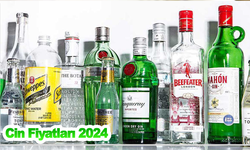An important warning came for the increasing use of sunglasses in the last days of the hottest period of summer. Bezmiâlem Vakif University Faculty of Medicine, Department of Ophthalmology, Lecturer Prof. Dr. İbrahim Arif Koytak said that when buying sunglasses, it is necessary to pay attention to whether there is a "CE" inscription on the glasses or on the packaging, which indicates that the glasses have been tested and approved according to international standards.
“Exposure to ultraviolet rays is harmful to the eyes”
Stating that some wavelengths of ultraviolet rays from the sun are filtered by the atmosphere and ozone layer, Prof. Dr. “Even the lowest wavelength UVA rays have the potential to cause irreparable damage to the skin and eyes when exposed for a long time. For example, skin cancers around the eyes and eyelids, wrinkles, sagging, color changes in the skin around the eyes and eyelids at an early age, cancers in the outer membrane of the eyeball (conjunctiva), pterygium on the outer membrane of the eye, popularly known as 'bird's wing' (in the eye). Meat growth), triggering some infections such as eye herpes that can cause serious damage, sunburns in the transparent corneal layer at the front of the eye, cataract development at an early age, and severe vision loss by affecting the most sensitive area of the retina, known as 'yellow spot disease'. macular (yellow spot) degeneration can be counted among them.
“Sunglasses are the easiest way to protect yourself”
Underlining that sunglasses are the easiest way to protect yourself from the harmful rays of the sun, Prof. Dr. Koytak said, “In order to avoid the damage caused by sunlight on the eyes and around the eyes, one should not go outdoors during the hours when the sun is at its highest, a hat or umbrella with a visor should be used, sunscreen should be applied to the face and especially the skin around the eyes, and to direct sunlight, albeit for a short time. looking should be avoided. However, the easiest and most effective way to protect our eyes from sunlight is the use of appropriate sunglasses. Taking into consideration our warnings and suggestions regarding the selection and use of sunglasses will ensure that you protect your eye health both in the short and long term.
“It should be 100 percent protective against ultraviolet rays”
prof. Dr. In order to be able to use healthy and high quality sunglasses, Koytak listed the things that should be considered other than the "CE" mark as follows: "Sunglasses must be 100 percent protective against all UV (ultraviolet) rays, that is, all wavelengths below 400 nanometers. For this, statements such as 'UV400', '100% protection against UV400', '100% protection against UVA and UVB' must be clearly written on the product. The UV filtering properties of sunglasses lenses can be tested with measuring devices available in almost all opticians. Therefore, if it is desired to be sure of the quality of the lenses of the glasses, the person can have the relevant test done at the optician, by supervising himself.”
“Everyone should wear sunglasses”
prof. Dr. Koytak continued: “Sunglasses should be worn by everyone, not just certain age groups or people with sensitive eyes. For example, sunglasses protection is also necessary for children. For safety reasons, unbreakable organic glasses and soft, unbreakable plastic frames with rounded sharp corners should be preferred instead of mineral glass for safety reasons. It should be ensured that the sunglasses frames are suitable for the face size of the person, fit snugly to the ears and nose, and will not slip from the eyes when the face is sweaty or when sunscreen is applied. Aesthetic concerns are also important, of course, but it should be preferred that the frames of the sunglasses completely cover the eye and the skin around the eyes as much as possible. Your eyeglass frames should also block light coming from the sides and reflecting from below. Therefore, small, flat, not suitable for facial curves and thin frames should be avoided.”
“Brand, price or glass color does not affect protection”
Emphasizing that the brand or price of sunglasses may not have any effect on its protection, Prof. Dr. Koytak said, “It may not be right to say that the protection is good for every eyeglass with a good brand or an expensive price. In addition, the color or darkness of the glass has no effect on the protection function. Because the main purpose of sunglasses is to protect the eyes from the rays of certain wavelengths rather than the brightness of the light. If it meets the conditions we mentioned, a very cheap, very clear lens can provide as good protection as a very expensive, well-known brand or glasses with black lenses. But usually in the open, hawker or moth
It should be noted that the glasses sold on undeclarable websites are not subject to any inspection and that even the CE marking on them may be fake. Consumers should take care to buy their sunglasses from optical stores, i.e. opticians, grocery stores, and platforms that are loyal to their legal and legal responsibilities, such as clothing stores or reliable websites. Meanwhile, polarized glasses have no positive or negative effect on protection. These glasses provide better quality and clear vision by reducing light scattering and glare under intense light. Therefore, it is essential to look for 100% UV400 filtering properties in polarized glasses as well.” said.
“It should be used in all sunny weather, not only in summer”
Underlining that the use of sunglasses should not be limited to summer months only, Prof. Dr. Koytak said, “Sunglasses should be used in all sunny weather conditions, regardless of the season. During outdoor sports, sea and snow sports, suitable sunglasses should be used regardless of the air temperature and sun intensity. People with macular degeneration, retinitis pigmentosa (chicken black), herpes, pterygium and similar eye diseases should be more sensitive than anyone else to wearing sunglasses. No matter how high quality they are, sunglasses should never be looked directly at the sun, and solar eclipses should not be watched. The coating and light transmission properties of sunglasses lenses may decrease over the years. Therefore, the UV protective properties of old sunglasses should be tested by opticians from time to time," he concluded.












